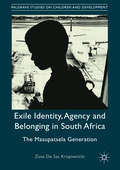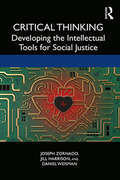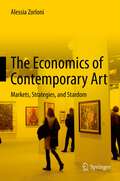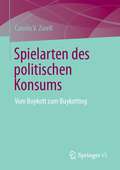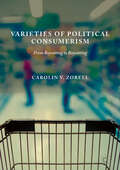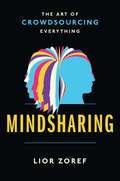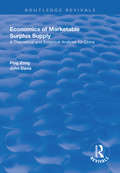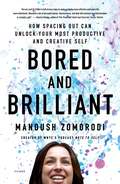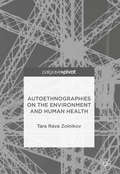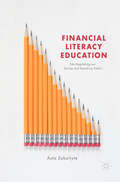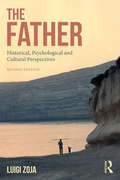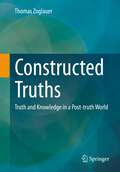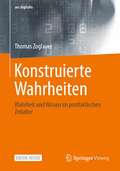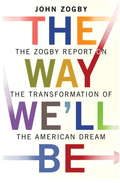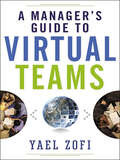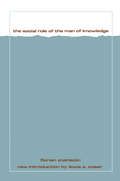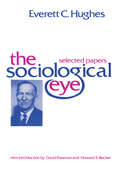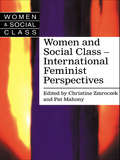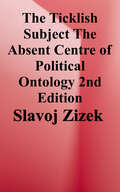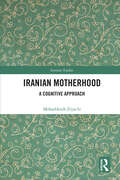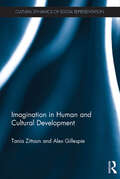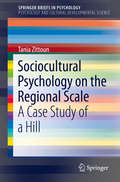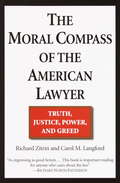- Table View
- List View
Exile Identity, Agency and Belonging in South Africa
by Zosa De Sas KropiwnickiThis book examines the experiences of 49 second-generation exiles from South Africa. Using “generation” as an analytical concept, it investigates the relational, temporal and embodied nature of their childhoods in terms of kinship relations, life cycle, cohort development and memory-making. It reveals how child agents exploited the liminal nature of exile to negotiate their sense of identity, home and belonging, while also struggling over their position and power in formal Politics and informal politics of the everyday. It also reflects upon their political consciousness, identity and sense of civic duty on return to post-apartheid South Africa, and how this has led to the emergence of the Masupatsela generational cohort concerned with driving social and political change in South Africa.
Critical Thinking: Developing the Intellectual Tools for Social Justice
by Joseph Zornado Jill Harrison Daniel WeismanCritical Thinking presents, defines and explains the intellectual skills and habits of mind that comprise critical thinking and its relationship to social justice. Each of the sequential chapters includes detailed examples and learning exercises that guide the reader step by step from intellectual competency, to critical thinking, to cultural cognition, and to critical awareness necessary for social justice. The book documents and explains the scope of multiple crises facing society today, including environmental destruction, income and wealth inequality, large-scale human migration, and the rise of autocratic governments. It shows how critical thinking, cultural cognition, and critical awareness lead to the possibility of solutions grounded in social justice. All college students, especially those in the social sciences and humanities, will develop the intellectual skills necessary for critically engaging information in order to become active learners and effective agents in the world. This book complements information in introductory, interdisciplinary, or discipline-specific courses. Every chapter contains examples and exercises that can be assigned as homework, adopted as in-class activities, or both. The Conclusion also contains exercises for developing writing and basic mathematical competency skills.
The Economics of Contemporary Art
by Alessia ZorloniThe book examines the contemporary art system with a broad and systematic approach, through the application of models of microeconomics and industrial organizations. By breaking down the traditional barriers between different academic disciplines such as art and economics, this book offers a unique opportunity to grasp the complexities of the contemporary art world and provides the tools to conduct a structural analysis of that market. The result is an in-depth analysis of the contemporary art market from an interdisciplinary perspective. While it is not a textbook in the strictest sense, the book offers a concise and effective overview of all actors in the art system, and provides supporting data and valuable information, both conceptual and practical. It is therefore a text that can be used by students wishing to better understand the complex dynamics that govern the contemporary art market, but also by cultural managers, collectors, potential art investors or simply art lovers who need a quick reference.
Spielarten des politischen Konsums: Vom Boykott zum Buykotting
by Carolin V. ZorellDieses Buch bietet eine Analyse der Politik des Konsums und zeigt, wie der "gebildete Verbraucher" eine entscheidende Rolle bei der Förderung verantwortungsvoller Marktpraktiken und des Konsums spielt. Auf der Grundlage einer umfassenden interdisziplinären Perspektive untersucht es das Ausmaß, die Triebkräfte und die Verbindungen von Boykott, Kaufboykott, Kennzeichnungssystemen und sozialer Verantwortung von Unternehmen (CSR) in 20 europäischen Ländern. Eine zentrale Frage ist, ob makro-gesellschaftliche Orientierungsmuster hinsichtlich der Rolle des Staates, der Unternehmen und der Bürger individuelle und länderübergreifende Unterschiede beim Boykottieren und beim Kaufverbot erklären können. Wie das Buch zeigt, gibt es nicht nur einen Typus des "politischen Verbrauchers", sondern mehrere, und ihr Auftreten steht in direktem Zusammenhang mit nationalen Variationen von Kennzeichnungssystemen und der sozialen Verantwortung von Unternehmen. Die Verbraucher brauchen Anhaltspunkte und Informationen über die politischen Hintergründe ihrer Einkäufe, und die politischen Entscheidungsträger müssen diesem Bedarf durch politische Maßnahmen Rechnung tragen, die den nationalen Mustern in den Ansichten über Zusammenarbeit und Marktbeziehungen entsprechen.
Varieties of Political Consumerism: From Boycotting to Buycotting
by Carolin V. ZorellThis book provides an analysis of the politics of consumption and how the ‘educated consumer’ plays a vital role in advancing responsible market practices and consumption. Based on a comprehensive interdisciplinary perspective, it explores the extent, drives and links of boycotting, buycotting, labelling schemes and Corporate Social Responsibility (CSR) in 20 European countries. A central question addressed is whether macro-societal patterns of orientation concerning the roles of the state, companies and citizens can explain individual and cross-national differences in boycotting and buycotting. As the book shows, there is not one type of ‘political consumer’, but several, and their occurrence is directly connected to national variations of labelling schemes and Corporate Social Responsibility. Consumers need reference points and information on the political backgrounds of purchases, and policy makers must address that need through political measures which fit to the national patterns in views about cooperation and market relationships.
Mindsharing
by Lior ZorefWhether we need to make better financial choices, find the love of our life, or transform our career, crowdsourcing is the key to making quicker, wiser, more objective decisions. But few of us even come close to tapping the full potential of our online personal networks. Lior Zoref offers proven guidelines for applying what he calls "mind sharing" in new ways. For instance, he shows how a mother's Facebook update saved the life of a four-year-old boy, and how a manager used LinkedIn to create a year's worth of market research in less than a day. Zoref's clients are using his techniques to innovate and problem-solve in record time. Now he reveals how crowdsourcing has the ability to supercharge our thinking and upgrade every aspect of our lives.
Economics of Marketable Surplus Supply: Theoretical and Empirical Analysis for China (Routledge Revivals)
by Ping Zong John DavisPublished in 1998. Chinese farm households have been at the centre of the rural reform process since the introduction of the Household Responsibility System in the late 1970’s. There can be little doubt that, for decades to come, they will continue to be a focus of interest both in academic and political circles. This is particularly true in relation to their role of grain sector, when we consider the prominent position of grain in China’s political economy. There is also intense global interest in the impact of the reform process on the country’s future grain self-sufficiency and trade. This book is ambitious in both its scope and remit. Its primary focus is the behaviour of the marketable surplus element of farm households’ grain supply since the beginning of the reform period. The early chapters provide very valuable insights into the nature of the rural reform process; it then looks at the impact of the reforms on the structure of rural economy in general and farm households in particular. This part of the book is rich in statistics on the reform period. In the analytical section the emphasis is on the difficult area of household modelling, covering both theoretical and empirical aspects. Despite the data limitations, which the authors acknowledge, these chapters provide very valuable analyses of the grain price changes. In particular, their use of models which capture the interdependencies between grain marketable surplus supply is a genuine contribution. This book should be read by anyone with an interest in the rural reform process in China and will be of particular relevance to students, scholars and the policy community.
Bored and Brilliant: How Spacing Out Can Unlock Your Most Productive and Creative Self
by Manoush Zomorodi"Bored and Brilliant shows the fascinating side of boredom. Manoush Zomorodi investigates cutting-edge research as well as compelling (and often funny) real-life examples to demonstrate that boredom is actually a crucial tool for making our lives happier, more productive, and more creative. What’s more, the book is crammed with practical exercises for anyone who wants to reclaim the power of spacing out – deleting the Two Dots app, for instance, or having a photo-free day, or taking a 'fakecation'." —Gretchen Rubin, author of #1 NYT Bestseller The Happiness Project"Bored and Brilliant is full of easy steps to make each day more effective and every life more intentional. Manoush’s mix of personal stories, neuroscience, and data will convince you that boredom is actually a gift." —Charles Duhigg, author of The Power of Habit and Smarter, Faster, BetterIt’s time to move “doing nothing” to the top of your to-do list.In 2015 Manoush Zomorodi, host of WNYC’s popular podcast and radio show Note to Self, led tens of thousands of listeners through an experiment to help them unplug from their devices, get bored, jump-start their creativity, and change their lives. Bored and Brilliant builds on that experiment to show us how to rethink our gadget use to live better and smarter in this new digital ecosystem. Manoush explains the connection between boredom and original thinking, exploring how we can harness boredom’s hidden benefits to become our most productive and creative selves without totally abandoning our gadgets in the process. Grounding the book in the neuroscience and cognitive psychology of “mind wandering” what our brains do when we're doing nothing at all—Manoush includes practical steps you can take to ease the nonstop busyness and enhance your ability to dream, wonder, and gain clarity in your work and life. The outcome is mind-blowing. Unplug and read on.
Studies in Emotion and Social Interaction: From Self to Social Relationships
by Van Zomeren MartijnWhat is it that moves and motivates us in our lives? Martijn van Zomeren proposes social relationships are at the essence of this key question and, in a fascinating investigation into human motivation, he develops a novel and integrative psychological theory termed 'selvations theory'. The theory suggests that we are essentially relational beings that seek to regulate relationships in response to felt changes in our network of relationships (selvations). However, we need to do this in culturally appropriate ways and this is where our culturally construed self comes to be of use. From Self to Social Relationships constitutes a powerful argument about human essence, integrating major theories in and around psychology, which has strong implications for the study and practice of social motivation.
Autoethnographies on the Environment and Human Health
by Tara Rava ZolnikovThis book explores the link between individual lives and significant environmental issues affecting millions of people around the world. Zolnikov offers a novel perspective on the environment and human health through autoethnographic stories. Each chapter includes an overview of an environmental risk factor or issue, such as air quality, accompanied by a reflective personal story. Her experiences were gathered around the world and revolve around immersion into local cultures. Learning about environmental health through this qualitative approach will enable readers to understand how issues in the environment are currently affecting people on an individual basis.
Immanuel Kant: Anthropology, History, and Education
by Günter Zöller Robert B. Louden Immanuel KantAnthropology, History, and Education, first published in 2007, contains all of Kant's major writings on human nature. Some of these works, which were published over a thirty-nine year period between 1764 and 1803, had never before been translated into English. Kant's question 'What is the human being?' is approached indirectly in his famous works on metaphysics, epistemology, moral and legal philosophy, aesthetics and the philosophy of religion, but it is approached directly in his extensive but less well-known writings on physical and cultural anthropology, the philosophy of history, and education which are gathered in the present volume. Kant repeatedly claimed that the question 'What is the human being?' should be philosophy's most fundamental concern, and Anthropology, History, and Education can be seen as effectively presenting his philosophy as a whole in a popular guise.
Financial Literacy Education
by Asta ZokaityteThis book explores the issue of consumer financial education, responding to increased interest in, and calls to improve peoples' financial literacy skills and abilities to understand and manage their money. New conceptual frameworks introduced in the book offer academic audiences an innovative way of thinking about the project on financial literacy education. Using the concepts of 'edu-regulation' and 'financial knowledge democratisation' to analyse the financial education project in the UK, the book exposes serious, and often ignored, limitations to using information and education as tools for consumer protection. It challenges the mainstream representation of financial literacy education as a viable solution to consumer financial exclusion and poverty. Instead, it argues that the project on financial literacy education fails to acknowledge important dependences between consumer financial behaviour and the socio-economic, political, and cultural context within which consumers live. Finally, it reveals how these international and national calls for ever greater financial education oversimplify and underestimate the complexity of consumer financial decision-making in our modern times.
The Father: Historial, Psychological and Cultural Perspectives
by Luigi ZojaCountless children throughout the world grow up without fathers. In this revised and updated edition of The Father, accompanied by a new preface, Luigi Zoja studies the reasons for this and assesses the contribution of this phenomenon to social and psychological problems. Using examples from classical antiquity to the present day, Zoja views the origins and evolution of the father from a Jungian perspective. He argues that the father’s role in bringing up children is a social construction that has been subject to change throughout history, and goes on to examine the consequences and consider the crisis facing fatherhood today. No other existing book faces the subject of fatherhood from such a broad and multidisciplinary perspective. Covering these issues from historical, sociological and psychological points of view, this revised edition of The Father includes a complete reworking of the final part of the book, focusing on the condition of the father in today’s globalized world, and with a particular look at the role historical trauma and grief play in family relationships. The book will be of special interest to analytical psychologists and Jungian psychotherapists in practice and in training, academics and students of Jungian and post-Jungian studies, sociology, anthropology, gender studies, and history.
Constructed Truths: Truth and Knowledge in a Post-truth World
by Thomas ZoglauerIn a world in which more and more fake news is being spread, it is becoming increasingly difficult to distinguish truth from lies, knowledge from opinion. Disinformation campaigns are not only perceived as a political problem, but the fake news debate is also about fundamental philosophical questions: What is truth? How can we recognize it? Is there such a thing as objective facts or is everything socially constructed? This book explains how echo chambers and alternative worldviews emerge, it blames post-factual thinking for the current truth crisis, and it shows how we can escape the threat of truth relativism.
Konstruierte Wahrheiten: Wahrheit und Wissen im postfaktischen Zeitalter (ars digitalis)
by Thomas ZoglauerIn einer Welt, in der immer mehr Fake News verbreitet werden, wird es zunehmend schwieriger, Wahrheit und Lüge, Wissen und Meinung auseinanderzuhalten. Desinformationskampagnen werden nicht nur als ein politisches Problem wahrgenommen, vielmehr geht es in der Fake-News-Debatte auch um fundamentale philosophische Fragen: Was ist Wahrheit? Wie können wir sie erkennen? Gibt es so etwas wie objektive Fakten oder ist alles sozial konstruiert? Dieses Buch erklärt, wie Echokammern und alternative Weltbilder entstehen, es macht das postfaktische Denken für die gegenwärtige Wahrheitskrise verantwortlich und zeigt, wie wir einem drohenden Wahrheitsrelativismus entgehen können.
The Way We'll Be: The Zogby Report on the Transformation of the American Dream
by John ZogbyIn this far-reaching examination of contemporary American culture, John Zogby, one of the nation's foremost pollsters, explores who today's Americans are, identifying patterns in our social makeup that hint at the way we'll be. Companies from multinational corporations down to family-owned small businesses can benefit from this detailed information about where we are and where we're going. Zogby gets to the bottom of this topic by doing what he does best: conducting and analyzing surveys. The conclusions outlined in The Way We'll Be are drawn from literally thousands of polls posed to the broadest possible cross-section of Americans since the 1960s. However, Zogby's complex research techniques are nowhere near as astounding as his conclusions: that the American Dream is in great transition---that a new American consensus is building. According to Zogby, four meta-movements are redefining what we want, what we expect of our leaders, and what we hope for: ---We are learning to live with limits on everything---from the resources we consume to the exercise of national power abroad. ---Led by the youngest adults, we are embracing diversity and redefining ourselves not by nationality but as world citizens. ---Simultaneously, more and more of us are rejecting materialism and looking inward for guidance and sustenance. ---We are demanding authenticity---in politicians, products, and our daily encounters---like never before. These are the plate tectonics of American society today, and they define us as much as opening the frontier defined early American settlers. They shape our national character. Zogby concludes his discussion of each movement with a list of "rules" for businesses looking to sell everything from automobiles to political candidates.
A Manager's Guide to Virtual Teams
by Yael ZofiYael Zofi&’s proprietary Trust Wheel model is a proven solution to the unique challenges managers must overcome as more people migrate to partially or fully-remote working situations.Based on the author&’s twenty-plus years of consulting experience, this powerful tool encourages cohesiveness and engagement among team members--even if they&’ve never met. A Manager&’s Guide to Virtual Teams does this by providing a practical road map for bridging the physical distance among coworkers, incorporating self-study exercises and simple, fun activities that develop trust and ensure your team&’s success.The book explores the most critical elements to success for a team founded in trust, including:accountability,communication,conflict management,and deliverables.Complete with examples, case scenarios, and strategies to help you navigate even your biggest hurdles, A Manager&’s Guide to Virtual Teams will help your disparate collection of people get their work &“out the door&” faster and better.
The Social Role of the Man of Knowledge
by Florian ZnanieckiIn this seminal contribution to the sociology of knowledge, first published in 1940, Florian Znaniecki develops a typology of the variety of specific social roles that scholars have played, and investigates the normative patterns that govern their behavior. A central tool for the investigation of these problems is the notion of “social circle”, the audience to which intellectuals address themselves. Znaniecki shows that thinkers do not speak to the total society but address selected segments and markets. Specific social circles bestow recognition, provide material or psychic support, and help shape the self-image of the thinker.
The Sociological Eye
by Florian ZnanieckiThis major expression of one of the leaders of the Chicago School, one of the most important schools of thought in contemporary American sociology, includes his recognized masterpieces of sociological research and writing. Hughes pioneered studies in a variety of sociological subjects: social institutions, racial interaction, work and occupations, and research methodology. Cumulatively, these essays show the obvious magnitude and scope of thought of one of the century's most distinguished scholars.In their introduction to this edition, Riesman and Becker provide a biographical background to Hughes' writing, describing his pervading influence on the field of sociology and on younger sociologists through his teaching, fieldwork, work in professional associations, and personality. The essays are grouped into four sections: the relationship of social institutions to changes in their surroundings and to the personalities and careers of persons; problems of multi-ethnic societies; the development of occupations, the monopoly license of professions, the determination of public policy about a line of work, and the relations between work and social role; and social observation and analysis.
Women and Social Class: International Feminist Perspectives (Women And Class Mini Ser.)
by Christine Zmroczek Pat MahonyThis volume presents debates on class within an international context. Its particular focus is on women's theorized experience of social class from a variety of feminist perspectives, contextualized in relation to the countries and regions in which they live. Using personal experience as a basis, contributors cover Australia, Bangladesh, Botswana, Britain, Canada, Czechoslovakia and the Czech Republic, India, Israel, Korea, New Zealand, Poland, and the USA - iluminating the differences and similarities between regions.; Challenging the view that "class is dead" as well as the idea that it is a British phenomenon, the book argues that class needs to be regarded as a key concept in any attempt to understand women's lives. It also reflects on personal and political experiences of class around the world in order to understand the mechanisms through which class discrimination operates and is mediated by gender, sexuality, ethnicity and racism.
The Ticklish Subject: The Absent Centre of Political Ontology (The Essential Zizek Series)
by Slavoj ZizekSlavoj Zizek, the maverick philosopher, author of over 30 books, acclaimed as the "Elvis of cultural theory", and today's most controversial public intellectual. His work traverses the fields of philosophy, psychoanalysis, theology, history and political theory, taking in film, popular culture, literature and jokes--all to provide acute analyses of the complexities of contemporary ideology as well as a serious and sophisticated philosophy. His recent films The Pervert's Guide to the Cinema and Zizek! reveal a theorist at the peak of his powers and a skilled communicator. <p><p>Now Verso is making his classic titles, each of which stand as a core of his ever-expanding life's work, available as new editions. Each is beautifully re-packaged, including new introductions from Zizek himself. Simply put, they are the essential texts for understanding Zizek's thought and thus cornerstones of contemporary philosophy. <p><p>The Ticklish Subject: The Absent Centre of Political Ontology: A specter is haunting Western thought, the specter of the Cartesian subject. In this book Slavoj Zizek unearths a subversive core to this elusive specter, and finds within it the indispensable philosophical point of reference for any genuinely emancipatory project.
Iranian Motherhood: A Cognitive Approach (Iranian Studies)
by Mohaddeseh ZiyachiThis book characterises the problematic status of motherhood in present-day Iranian society – that is, problem in the Foucauldian sense of an object of thought and a source of tension, not as a pathological issue – and explains the historical processes contributing to this problematisation. Taking an interdisciplinary approach, the author draws on a cognitive anthropological perspective whilst incorporating ethnographic, historical, and evolutionary viewpoints. By applying this perspective to the current cultural model of motherhood, and considering specific social, political, and economic factors in Iran, the author provides an exhaustive, contextualised understanding of the motherhood problem and its multidirectional changes throughout time. The book follows a multi-method framework and combines qualitative ethnographic and auto-ethnographic data with historical evidence and comparative data. As such, it also contributes to the women's movement in Iran by fostering discussion on women's issues and demystifying women's understandings and experiences. The book will appeal to those working in a range of disciplines, including gender studies, cognitive anthropology and Iranian history. Written in non-technical language, and providing insights into the problem of motherhood in comparable contexts, the book will also be of interest to general readers.
Imagination in Human and Cultural Development (Cultural Dynamics of Social Representation)
by Tania Zittoun Alex GillespieThis book positions imagination as a central concept which increases the understanding of daily life, personal life choices, and the way in which culture and society changes. Case studies from micro instances of reverie and daydreaming, to utopian projects, are included and analysed. The theoretical focus is on imagination as a force free from immediate constraints, forming the basis of our individual and collective agency. In each chapter, the authors review and integrate a wide range of classic and contemporary literature culminating in the proposal of a sociocultural model of imagination. The book takes into account the triggers of imagination, the content of imagination, and the outcomes of imagination. At the heart of the model is the interplay between the individual and culture; an exploration of how the imagination, as something very personal and subjective, grows out of our shared culture, and how our shared culture can be transformed by acts of imagination. Imagination in Human and Cultural Development offers new perspectives on the study of psychological learning, change, innovation and creativity throughout the lifespan. The book will appeal to academics and scholars in the fields of psychology and the social sciences, especially those with an interest in development, social change, cultural psychology, imagination and creativity.
Sociocultural Psychology on the Regional Scale: A Case Study of a Hill (SpringerBriefs in Psychology)
by Tania ZittounThis brief presents the case study of a hill in Czech Republic (Říp) and its region, and contributes to theorization in sociocultural psychology on three points, along three current debates. First, it contributes to the exploration of the mutual constitution of the lifecourse and of history, uses a distinction between socio-, micro- and ontogenesis, and argues that a focus on a delimited geographical space enables to better observe the processes by which history, daily situated interactions and courses of life shape each other. Second, in doing so, it sketches an understanding of the role of the material, spatial and semiotic specificities of landscapes in human development. Especially, it identifies some of the processes by which redundant dynamic patterns present in the environment may participate to the guidance of human experience. Third, it expands the reflection on case study construction and generalization. On the one side, it participates to a current debate in cultural psychology on the dynamics of generalization from single cases; on the other, it also dialogues with a more general reflection in the social sciences on social dynamics at the scale of small regions. Altogether, this brief is a first attempt to examine jointly these questions at the scale of a small region, a unique natural laboratory of social and psychological change. It will be of interest to researchers as well as graduate students in the fields of cultural and sociocultural psychology, cognitive psychology, and the social sciences.
The Moral Compass of the American Lawyer
by Richard A. Zitrin Carol M. LangfordThese are perilous times for Americans who need access to the legal system. Too many lawyers blatantly abuse power and trust, engage in reckless ethical misconduct, grossly unjust billing practices, and dishonesty disguised as client protection. All this has undermined the credibility of lawyers and the authority of the legal system. In the court of public opinion, many lawyers these days are guiltier than the criminals or giant corporations they defend.Is the public right? In this eye-opening, incisive book, Richard Zitrin and Carol Langford, two practicing lawyers and distinguished law professors, shine a penetrating light on the question everyone is asking: Why do lawyers behave the way they do? All across the country, lawyers view certain behavior as "ethical" while average citizens judge that same conduct "immoral." Now, with expert analysis of actual cases ranging from murder to class action suits, Zitrin and Langford investigate lawyers' behavior and its impact on our legal system. The result is a stunningly clear-eyed exploration of law as it is practiced in America today--and a cogent, groundbreaking program for legal reform.From the Trade Paperback edition.
